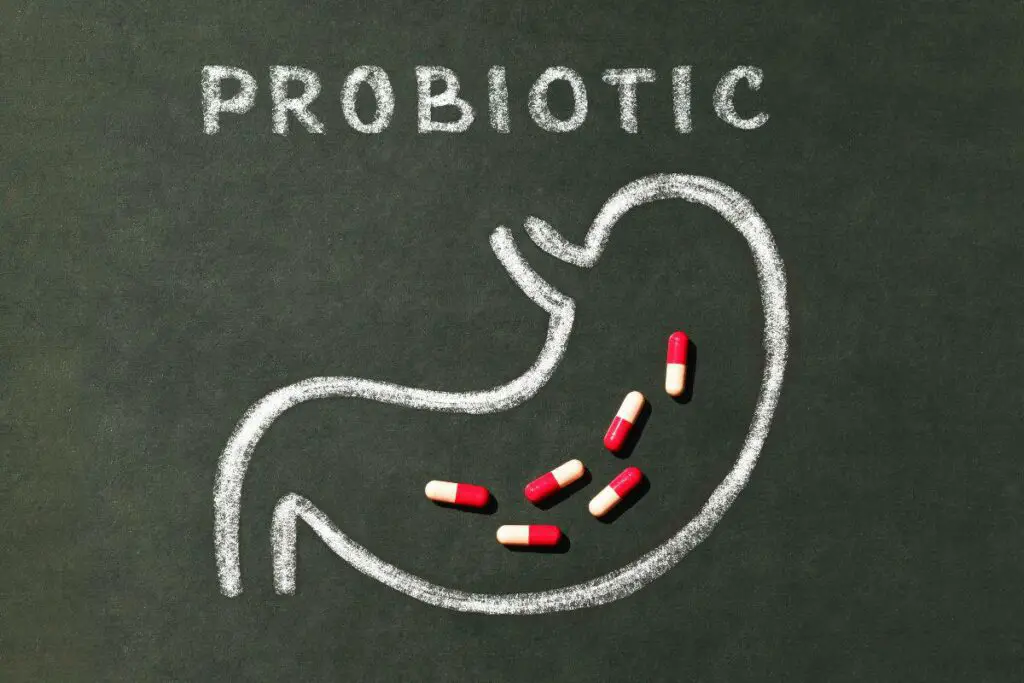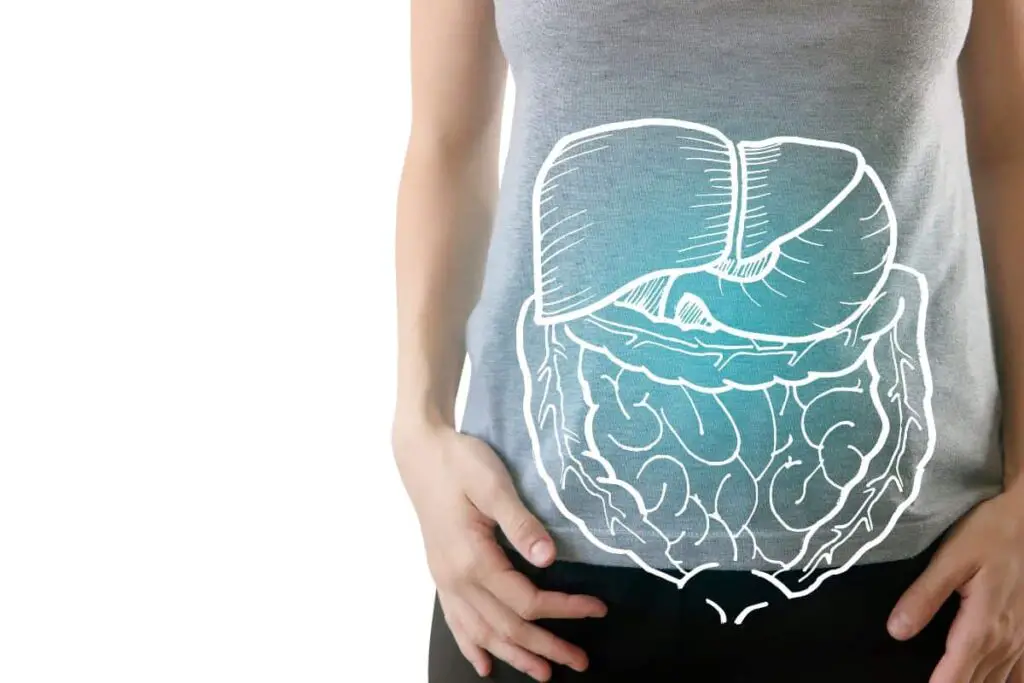Have you ever wondered how the microscopic world within our gut can have a profound impact on our health? The exploration of probiotic benefits offers a fascinating insight into this invisible realm.
Probiotics are live bacteria that play a crucial role in maintaining our digestive system’s equilibrium and overall well-being. Often referred to as “good” or “helpful” bacteria, they help maintain the natural balance of microorganisms in the intestines.
The concept of probiotics is not new; historical practices have harnessed the power of microorganisms in fermented foods for centuries. Cultures around the world have consumed fermented dairy products, like kefir and yogurt, long before the term “probiotic” was coined in the early 20th century
In modern medicine, the promise of probiotics is being explored more than ever. Researchers are investigating their potential in preventing and treating illnesses, from gastrointestinal conditions to allergies.
With an increasing number of studies revealing the far-reaching effects of these microorganisms, the interest in probiotics is not just a trend—it’s a pivotal aspect of contemporary health science.
- Related: Complete Probiotics Guide

Key Takeaways
- Digestive Health Enhancement: Probiotics support the breakdown of food, increase nutrient absorption, and synthesize key vitamins. They can alleviate digestive discomfort, as evidenced by studies showing improvements in symptoms like bloating.
- Immune System Boost: Probiotics strengthen immunity by reinforcing the gut barrier and stimulating immune cells. Regular consumption of probiotic-rich foods or supplements with validated strains can reduce the incidence of infections and enhance vaccine responses.
- Chronic Disease Prevention: By modulating inflammation and metabolic processes, probiotics may lower the risk of obesity, diabetes, and heart disease. Incorporating them into the diet, along with prebiotics, can support overall health, though more research is needed to confirm specific benefits.
- Mental Health Benefits: The gut-brain axis suggests that probiotics could improve mental well-being by producing mood-regulating neurotransmitters. Known as “psychobiotics,” they may complement traditional mental health treatments, with ongoing research exploring their full potential.
- Relief for Digestive Disorders: Probiotics can balance the gut microbiome, offering relief for conditions like IBS and IBD. Selecting strains with research backing for specific digestive issues can be transformative for those affected.
- Weight Management Support: Certain probiotic strains have been linked to weight loss and improved metabolism. A combination of probiotic-rich foods, supplements, and a healthy lifestyle can contribute to maintaining a healthy weight.
- Antibiotic Treatment Ally: Taking probiotics during and after antibiotic use can prevent antibiotic-associated diarrhea and restore gut flora balance. It’s important to choose the right strains and timing to maximize their effectiveness.
By incorporating these key takeaways into their lifestyle, readers can harness the multifaceted benefits of probiotics for improved health and well-being.
1. Enhanced Digestion and Nutrient Absorption
Probiotics play a crucial role in the digestive process, serving as an army of beneficial bacteria that aid in the efficient breakdown of food. They facilitate the conversion of fibers into short-chain fatty acids, which are pivotal for gut health. By doing so, they ensure that the body can extract maximum nutrition from the food consumed.
These microscopic helpers are also instrumental in synthesizing essential vitamins such as vitamin K and some of the B vitamins, bolstering the body’s nutrient profile. They assist in mineral absorption, particularly calcium and iron, which are vital for maintaining strong bones and preventing anemia, respectively.
To harness these benefits, individuals might consider incorporating probiotic-rich foods like yogurt, kefir, and fermented vegetables into their diet or discussing a probiotic supplement with a healthcare provider.
2. Strengthened Immune System
The intricate connection between the gut and the immune system is pivotal for maintaining overall health. Probiotics, particularly strains like Lactobacillus and Bifidobacterium, play a crucial role in enhancing immune function.
They help by reinforcing the gut barrier, stimulating the production of natural antibodies, and boosting the activity of immune cells like lymphocytes and macrophages.
Clinical trials have provided compelling evidence supporting the immune-boosting properties of probiotics. For instance, studies have shown that individuals taking probiotics experience a lower incidence of respiratory infections and improved response to flu vaccines.
To harness these potential health benefits, consider incorporating probiotic-rich foods into one’s diet or choosing a high-quality supplement. It’s important to select food sources and products containing specific strains that have been clinically validated for their immune-enhancing effects.
- Incorporate Probiotic-Rich Foods: Yogurt, kefir, sauerkraut, and kimchi are excellent dietary sources.
- Select Quality Supplements: Look for supplements with clinically validated strains.
- Regular Consumption: Consistent intake is key to sustaining immune benefits.
By understanding the gut-immune axis and strategically including probiotics in one’s routine, one can significantly bolster their defenses against infections.

3. Reduced Risk of Chronic Diseases
Probiotic bacteria influence the body’s resistance to chronic conditions, including obesity, diabetes, and heart disease. These chronic diseases share a common link with gut health, as an imbalance in the microbiome and bad bacteria may lead to inflammation and altered metabolic processes.
Evidence suggests that probiotics help modulate the body’s inflammatory response. They interact with gut mucosa and immune cells, potentially reducing low-grade chronic inflammation, a hallmark of many metabolic diseases. By bolstering gut barrier function, probiotics may prevent harmful substances from triggering inflammatory pathways.
Moreover, probiotics are thought to influence the metabolism of fats and sugars. For example, they can enhance the production of short-chain fatty acids like butyrate, which has been shown to improve insulin sensitivity. This could have beneficial effects for individuals managing diabetes.
Emerging research underscores the potential of probiotics in disease prevention. Studies have observed that certain strains may reduce cholesterol levels, thereby supporting cardiovascular health. Others have been linked to weight management, suggesting a role in combating obesity.
Incorporating probiotics into one’s diet can be done through:
- Regular consumption of fermented foods such as yogurt, kefir, sauerkraut, and kimchi.
- Taking probiotic supplements, ensuring they contain live and active cultures.
- Choosing a diet rich in prebiotics to fuel the growth of beneficial bacteria.
It’s important to note that while the field is promising, more research is needed to fully understand the specific bacterial strains and dosages that are most effective for preventing chronic diseases.
Consulting with a healthcare provider can help individuals tailor probiotic intake to their unique health needs.
4. Improved Mental Health and Mood
The intricate gut-brain axis serves as a communication highway between one’s digestive system and their brain, influencing emotional and mental well-being.
Research suggests that a balanced gut microbiota, nurtured by probiotics, might play a pivotal role in mitigating symptoms of anxiety and depression. These beneficial microbes can produce neurotransmitters like serotonin, which is crucial for mood regulation.
Emerging evidence points to “psychobiotics,” a subset of probiotics with the potential to impact psychological health positively. They may not only improve gut health but also offer a promising adjunct to traditional mental health treatments.
For those seeking to harness these benefits, consider:
- Including probiotic-rich foods like yogurt, kefir, and sauerkraut in daily meals.
- Exploring probiotic supplements after consulting with a healthcare provider.
- Monitoring mood changes over time to gauge the effects of probiotic intake.
As research unfolds, the realm of psychobiotics could revolutionize the approach to mental health through the lens of gut microbiota and the balance of bacteria.
5. Alleviation of Digestive Disorders
Probiotics have been shown to offer relief for those suffering from irritable bowel syndrome (IBS) and inflammatory bowel disease (IBD). These beneficial bacteria can help balance the gut microbiome, which is often disrupted in digestive disorders.
For IBS, strains like Lactobacillus plantarum and Bifidobacterium infantis have been noted for their efficacy. Meanwhile, individuals with IBD may find Saccharomyces boulardii and Lactobacillus rhamnosus GG particularly helpful.
When selecting a probiotic, it’s vital to choose strains backed by research for specific conditions. Whether it’s IBS, IBD, ulcerative colitis, and any wide range of health issues, consulting with a healthcare provider can ensure the right formulation is chosen for one’s unique needs.

6. Maintenance of a Healthy Weight
Probiotics play a crucial role in maintaining your gastrointestinal health, which is intimately connected to weight regulation. These healthy bacteria can influence metabolism by interacting with the host’s energy homeostasis and fat storage mechanisms. They may also impact satiety, the feeling of fullness after eating, which can lead to reduced calorie intake.
Research has shown that certain strains of probiotics, such as Lactobacillus rhamnosus and Lactobacillus gasseri, have been associated with weight loss in obese individuals.
One study published in the British Journal of Nutrition found that women taking probiotics lost more weight than those taking a placebo, suggesting a potential benefit for weight management.
Incorporating probiotics into one’s diet through fermented foods like yogurt, kefir, or supplements can be an effective strategy for those looking to manage their weight. However, it’s essential to combine these efforts with a balanced diet and regular exercise for optimal results.
Here are some actionable tips for integrating probiotics into a weight management plan:
- Opt for probiotic-rich foods daily.
- Choose supplements with strains proven to aid in weight management.
- Pair probiotics with prebiotic fibers to enhance their efficacy.
- Monitor portion sizes and overall food intake while enjoying the benefits of a healthier gut.
7. Support during Antibiotic Treatment
Antibiotics, while effective against bacterial infections, can disrupt the delicate balance of the gut microbiome. This disturbance often leads to antibiotic-associated diarrhea (AAD), as beneficial bacteria are depleted. Probiotics come to the rescue by replenishing these friendly microbes, potentially preventing AAD and restoring gut harmony.
For those undergoing antibiotic treatment, integrating probiotics into their regimen can be a game-changer. It is generally recommended to take probiotics a few hours after antibiotics to avoid the probiotics being destroyed by the antibiotics.
Choosing the right probiotic is crucial; strains such as Lactobacillus rhamnosus GG and Saccharomyces boulardii have been shown to be particularly effective in preventing AAD.
Here are some quick tips for incorporating probiotics during antibiotic therapy:
- Select a probiotic supplement with research-backed strains for AAD.
- Consume probiotics at least 2 hours after taking antibiotics.
- Continue probiotics for a few weeks after completing antibiotic treatment to help rebuild the gut microbiome.
By following these guidelines, individuals can support their gut health and mitigate some of the unwanted side effects of antibiotics. Be sure to consult with your doctor on the safety of probiotics depending on the antibiotics you are taking.
8. Promoting Skin Health
The intricate connection between the gut and skin, often referred to as the gut-skin axis, hints at a fascinating interplay where gut health can reflect on one’s complexion. Individuals struggling with acne or eczema may find solace in the potential of probiotics.
These beneficial microorganisms are thought to soothe inflammation and reduce skin flare-ups by bolstering the gut’s barrier function and modulating the immune system.
While the promise of probiotics for skin conditions is alluring, it’s crucial to consider the current research landscape. Studies have shown encouraging results, yet they are in the nascent stages. The complexity of the microbiome and individual variations in response to probiotics necessitate further investigation.
For those eager to explore the benefits of probiotics for skin health, incorporating a high-quality supplement or probiotic-rich foods like yogurt and kefir into one’s diet could serve as a complementary strategy.
Consulting a healthcare provider can help tailor this approach to each person’s unique needs. It’s a burgeoning field, but the early signs of probiotics being a boon for skin health are certainly there.
9. Enhanced Oral Health
The mouth is a gateway to the body’s health, harboring its own complex community of bacteria. A balanced oral microbiome is crucial for maintaining not just oral health but overall well-being. Disruptions to this delicate ecosystem can lead to common issues such as gum disease and halitosis (bad breath).
Incorporating probiotics into one’s oral care routine offers a promising avenue for prevention and treatment. These beneficial bacteria can outcompete harmful microbes, reducing inflammation and the incidence of periodontal problems.
For those struggling with persistent bad breath, probiotics may help by restoring a healthy balance of oral flora.
The integration of probiotics into dentistry is gaining momentum, with research exploring innovative applications in oral care products. This includes probiotic lozenges, toothpastes, and mouthwashes designed to deliver beneficial bacteria directly to the oral cavity.
To harness these benefits:
- Look for oral care products containing probiotics specifically studied for oral health.
- Consider probiotic supplements that includes bacteria strains like Lactobacillus reuteri.
- Maintain a diet rich in prebiotics to feed and support your oral microbiome.
The future of oral care may well include a probiotic approach, providing a natural complement to traditional dental practices.
10. Probiotics for Women’s Health
The microbiome within a woman’s body plays a crucial role in her overall well-being, influencing everything from immunity to reproductive health.
Probiotics bolster the body’s microbial population and have been shown to offer specific advantages for women. They aid in maintaining the delicate balance of the vaginal flora, which can prevent common infections such as bacterial vaginosis and yeast infections.
Research also suggests a promising connection between probiotics and reproductive health. For women trying to conceive or those already pregnant, probiotics may improve fertility outcomes and support a healthy pregnancy by enhancing the gut microbiota balance, which is closely linked to the immune system.
Incorporating probiotics into one’s diet can be as simple as choosing fermented foods like yogurt and kefir or taking a high-quality supplement. Consulting with a healthcare provider ensures the selection of strains that are most beneficial for individual health needs.
- Preventing Vaginal Infections: Regular intake of probiotics may reduce the risk of infections and improve vaginal health.
- Enhancing Fertility and Pregnancy: A balanced microbiome supported by probiotics could positively impact fertility and pregnancy outcomes.

11. Optimizing Probiotic Use: Tips and Precautions
When selecting a probiotic supplement, it’s crucial to consider the types of probiotic strains and their alignment with one’s specific health needs. A healthcare provider can offer guidance on which strains might be most beneficial. For instance, Lactobacillus and Bifidobacterium strains are common for digestive tract health, while Saccharomyces boulardii can be useful for diarrhea.
Proper storage is key to maintaining the efficacy of probiotics too. Many require refrigeration to preserve the live cultures, though some shelf-stable options exist.
Adherence to the recommended dosage of probiotics is also important, as is timing; taking probiotics on an empty stomach or before meals can optimize their survival through the gastrointestinal tract.
Certain individuals should exercise caution with probiotics. Those with compromised immune systems, critical illness, or those who have recently undergone surgery may be at increased risk for adverse effects and should consult a healthcare professional before use.
Here are some actionable tips for optimizing probiotic use:
- Read labels for specific strains and CFU count.
- Follow storage instructions to maintain potency.
- Take probiotics as directed, considering the best time for absorption.
- Discuss with a healthcare provider before starting probiotics, especially if one has underlying health conditions or is on immunosuppressive therapy.
Benefits of Probiotics Final Thoughts
The myriad benefits of probiotics, from enhancing digestive health to bolstering the immune system, present a compelling argument for their inclusion in daily health regimens.
These beneficial bacteria have shown promise in not only aiding in nutrient absorption and alleviating digestive discomfort but also in potentially reducing the risk of chronic diseases and improving mental health.
As researchers continue to unravel the complex interactions between probiotics and various aspects of well-being, individuals stand to gain from incorporating these microorganisms into their diet—whether through fermented foods or targeted dietary supplements. Probiotics have even been shown to help with non-GI issues like urinary tract infections (UTIs).
The journey towards optimal health is multifaceted, and probiotics represent a pivotal ally in this quest. By understanding and leveraging their power, one can proactively support their body’s intricate systems, from the gut to the brain.
As the science of probiotics evolves, so too does the opportunity for individuals to enhance their health in a holistic and natural way. Embracing the probiotic path can lead to a harmonious balance within, reflecting the ancient wisdom that a healthy gut is indeed the cornerstone of overall vitality.
- https://pubmed.ncbi.nlm.nih.gov/31434172
- https://pubmed.ncbi.nlm.nih.gov/30468509/
- https://pubmed.ncbi.nlm.nih.gov/31368544/
- https://pubmed.ncbi.nlm.nih.gov/28914794/
- https://pubmed.ncbi.nlm.nih.gov/29521671/
- https://www.fda.gov/consumers/consumer-updates/dietary-supplements
- https://wexnermedical.osu.edu/integrative-complementary-medicine/services/nutrition-dietary-services
- https://www.cambridge.org/core/journals/british-journal-of-nutrition/article/effect-of-lactobacillus-rhamnosus-cgmcc13724-supplementation-on-weight-loss-and-maintenance-in-obese-men-and-women/7C9810D79528C4ADC77A22EE45F9CA8E
- https://pubmed.ncbi.nlm.nih.gov/31434172
- https://pubmed.ncbi.nlm.nih.gov/30468509/
- https://pubmed.ncbi.nlm.nih.gov/31368544/
- https://pubmed.ncbi.nlm.nih.gov/28914794/
- https://pubmed.ncbi.nlm.nih.gov/29521671/
- https://www.fda.gov/consumers/consumer-updates/dietary-supplements
- https://wexnermedical.osu.edu/integrative-complementary-medicine/services/nutrition-dietary-services
- https://www.cambridge.org/core/journals/british-journal-of-nutrition/article/effect-of-lactobacillus-rhamnosus-cgmcc13724-supplementation-on-weight-loss-and-maintenance-in-obese-men-and-women/7C9810D79528C4ADC77A22EE45F9CA8E

